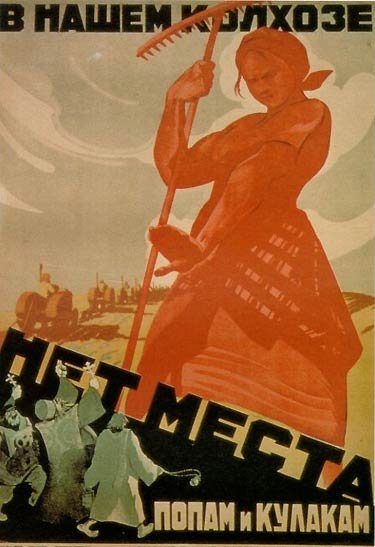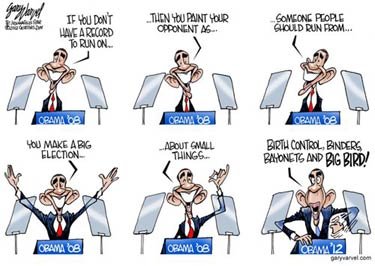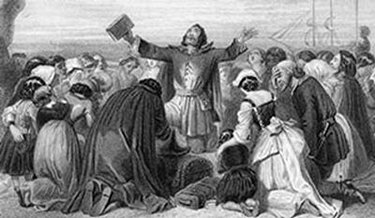Category Archive 'Class Warfare'
23 Apr 2015


A Lilly Pulitzer dress.
Megan Garber collects criticisms of the Lilly Pulitzer clothing line and then opens up on it herself, sounding rather like (a more clever) Tom Buchanan denouncing Jay Gatsby, for “selling what cannot, in fact, be bought.”
I’d, of course, never even heard of Lilly Pulitzer, and I have some difficulty perceiving a connection between all those vivid pastels and what Mr. Burke used to refer to as “the unbought grace of life,” but reading this piece in the Atlantic I could not help but think, that if these women’s duds succeed in upsetting lefties so much, Lilly Pulitzer must be doing something right.
In January, the clothing-and-lifestyle brand Lilly Pulitzer announced that it would collaborate with Target, releasing a collection of 250 pieces of apparel, accessories, and home decor by way of the discount chain. This weekend, the results of that collaboration were put up for sale in Target stores and on its website. Both of these events would seem to be innocuous: yet another instance of the discount retailer’s collaboration with a high-end fashion brand, of luxury goods made accessible to the masses, of fashion (relatively) democratized. A win-win! Actually, a win-win-win!
There was something different, however, about this particular launch. #LillyforTarget ended up, remarkably … angering people. Lots of people.
The collaboration angered, first of all, fans of Lilly Pulitzer, whose clothes have doubled as a “preppy uniform†for decades. It angered Target customers who tried, and failed, to grab $40-ish “Lillys†during a sale that was meant to span several weeks and instead spanned mere hours. It angered Target executives, who were disappointed in the performance of the chain’s website during the sale and indignant that the products they’d intended for their customers were being resold on eBay for more than twice the original cost.
Most interestingly, though, #LillyforTarget provoked the vitriol of fashion critics and business-minded brand-watchers. “I have never seen a woman wearing Lilly Pulitzer who would not have looked better in a ratty flannel bathrobe,†the business writer Megan McArdle confessed. The fashion critic Robin Givhan noted that “the classic Lilly Pulitzer dress comes in shrill shades of yellow and pink that are vaguely infantilizing. They are clothes that can be shrunk down and worn by 7-year-old girls without changing a single design element—if there were actual design elements to change. But there are not. …
[I]n part, it’s the aesthetics of Pulitzer’s clothes. Which are, with their festively flora-fauna-ed prints, the sartorial equivalents of the people who can’t stop talking about the juice cleanse they’re on. They are perky, insistently so. They are self-absorbed, aggressively so. Your retinas aren’t currently up for seeing some bubble-gum-pink toucans, their bills interlocked in an explosion of avian paisley? Lilly Pulitzer does not care. Lilly Pulitzer does not even think to ask.
The broader criticism, though, is the performance of identity that the Pulitzer brand represents. “Lilly†is not about luxury; it is about privilege. There is an important distinction between the two, Givhan notes. The brand, she writes, “suggests an advantage of birth. The clothes stir up scrapbook notions of ancient family trees, summer compounds, boarding school uniforms, and large, granite buildings inscribed with some great-great-grandfather’s name. Lilly Pulitzer represents something that money cannot buy.â€
Which is another way of saying that Pulitzer’s clothes evoke not just wealth, but class. They speak to a status that is conferred rather than earned, and that cannot—with apologies to hard work and good luck and all the other vehicles of the American dream—be fully democratized. The garments are evidence in that sense not (just) of conspicuous consumption, but rather of privilege as it plays out as an economic system. They nod to, and then politely ignore, Thomas Piketty. Those whimsy-dripping pineapples, those insouciant peacocks, the designs that are often described as “eye-poppingâ€â€”they are evidence not just of “resortwear†gone mainstream, but also of the ease of living enjoyed by those who can use the term “resortwear†unironically. These are clothes that are worn by people for whom life is, in relative terms, a permanent vacation.
Read the whole thing… and marvel.

Typical Lilly Pulitzer patterns.
19 Apr 2015


Economic Classes
Devon Helton has an excellent, really-nails-it column discussing the realities of the complex class structure in contemporary America. He differentiates social from economic classes. Here’s a bit of his tale upon the plebs:
Sixty years ago a pleb might live in a tight-knit, urban, ethnic community. The neighborhood would have very low crime, safe schools, and strong churches. Censorship laws promoted family values in movies and on TV. The upper class would live blocks away from the lower class. In ensuing decades, a combination of demographic changes, “urban renewal” projects, and legal changes rocked this world. The great migration brought into the city a poor, uneducated African-American population from the south. This migrant population had a much higher rate of criminal behavior. Housing projects and forced integration mixed this population into the ethnic white enclaves. Legal changes made policing much less effective. Crime in these neighborhoods rose dramatically. Court rulings and policy changes stripped public school teachers of tools to discipline unruly children.
After these changes, the only way a person could avoid a high-crime neighborhood was to move to a neighborhood where the underclass cannot afford to live. If a parent wants to send their kid to a school where class is not continually interrupted by underclass children, they must send their kid to a school with no underclass children. That means they must buy a home in a school district where the underclass are priced out. Parents use the coded, politically correct language of “finding a neighborhood with good schools.” But in reality, school spending, pedagogy, and teacher qualification do not differ much between the underclass inner city and suburban neighborhoods. What parents are really doing is “finding a neighborhood with good students”.
Schools no longer view instilling traditional morality and character as part of their mission. The Hays code that guided movie censorship is long gone. As a result, parents must take on the full burden of controlling their children’s media intake. Parents must live in neighborhoods where the other parents uphold the same values, otherwise their children will pick up the wrong values from their friends.
Some plebs manage to work extra hard, stress finances to the max, and buy their way into a classier neighborhood. But they will live on the edge – a layoff or furlough could bankrupt them. Their landlord will boot them right back into the underclass neighborhood.
Many plebs cannot afford to exit the underclass neighborhood. They live in neighborhoods with high crime, drug dealers on the street, and wild schools. They might get mugged on the street. Their children may end up falling into drugs or a gang. Their daughter might follow her friends and get knocked up at 17. The pleb who remains in the underclass neighborhood lives in constant danger of falling into the underclass.
Read the whole thing.
Hat tip to Vanderleun.
11 Jan 2014

Some years ago, one broilingly hot July day, I was in New Haven going to the air-conditioned Sterling Memorial Library to do some research for a writing project.
Beside the front entrance steps, a colored Yale maintenance staff employee was working in the hot sun, perspiration pouring down his face, chipping out the aged mortar from between sandstone blocks in preparation for re-pointing them. It was a nasty job, picking out the old cement using a small sledgehammer and a cold chisel, and it was an exponentially nastier job when performed in 100+ degree weather under a bright sun.
As I approached, I couldn’t help noticing that the entire crowd of typically left-wing, conspicuously socially conscious liberals passing directly past the maintenance guy were utterly oblivious to his predicament and to his very existence. He might as well have been a potted plant or a steel trashcan standing beside the library’s elaborate oaken doors for all the attention he was receiving.
I also could not help but perceive that that workman was aware of how thoroughly he was being ignored (and implicitly despised). He was doing a man’s work, a difficult, painstaking, and unpleasant job under extraordinarily adverse conditions. Being only human, he naturally desired some kind of fraternal sympathy from his fellow man, and some recognition that he was doing an unusually tough job under unusually bad conditions. It was impossible not to see that finding himself invisible, divided from the dozens of fellow representatives of humanity passing with a few feet of him by barriers of class as obdurate and inflexible as the stones he was working on, was bitterly alienating and insulting. He was holding himself with an air of resentment, and I could see him muttering angrily to himself under his breath.
So I deliberately slowed, and paused next to him, and said: “It is sure a hot day to be doing that kind of work!” “Sho’ is,” he responded smiling happily and taking a moment to pull out his handkerchief and wipe his face. “Damn hot.” I nodded in the direction of the passing faculty and students. “Some people don’t know what a day’s work is like.” I said, and he laughed appreciatively.
It only took a few seconds, but I’d managed to give him the sense of human solidarity he obviously needed, while reassuring him that at least one passerby recognized the nature and cost of his personal contribution to physical survival of the University.

Anthony Esolen, who teaches English at Providence College, is also the kind of guy who has doubtless worked with his hands, and who is therefore capable of perceiving the yawning chasm between professoriate and the proletariat, between the people in America who actually work up a sweat and the members of the community of fashion elite who call all the shots.
We professors at Providence College have for two years now been working in the midst of invisible men, men… who in these times are almost as insane and as morally blinkered as the professors they serve. The men have built a large and handsome Center for the Humanities, out of brick and stone. They have had to transform a hill and a parking lot to get the project started. They have turned an old field into a new facility for soccer, field hockey, and track, complete with bleachers and a press house, and eighty foot tall lights for events at night. They have laid hundreds of yards of concrete pathways. They have cleared out a useless hill thicketed with scrub trees and made it into a decorative border for the campus. They have built temporary parking lots and torn them out again and replaced them with sod. They have dug out stumps and planted trees. They have worked with jackhammers, drills, chisels, backhoes, saws, scaffolding, trowels, wheelbarrows, sledges, and the indispensable hands, arms, legs, shoulders, and back. They have done all this while remaining as quiet and unobtrusive as they could be.
They work hard, at work that takes its toll on their bodies, in all seasons and in all but the filthiest weather. Yet I doubt that the feminist professor – and most professors are feminist – gives them a passing thought. Without men like them, we would have nothing; nothing to eat, no metal for our cars, no bricks, no stone, no wooden planks, no houses, no roads, no public buildings, no clean running water, nothing. They do work that is more than desirable. It is absolutely necessary. I teach English poetry; that is not necessary. I will not trouble to discuss sociology, feminist or otherwise.
We might be apt to shrug and say, “What of it? They are well paid,†and some of them are. Some of them are not, but then, don’t college graduates deserve to make more money than workers on the land, of the land, and under the land? And they do have the vote, don’t they? Everyone gets one vote, and that makes everyone equal.
Well, no, it doesn’t, no more than if everyone enjoyed the privilege of spitting once into a national spittoon. We are looking for equality as men, so that we can say what Mr. Morgan said. And the common laborers enjoy no such thing. They have virtually no influence over what their children are taught in school, and how. Their sons are regularly badgered for being boys, and bullied into ingesting drugs to conform their boyish natures to the ideal of mannerly servility. They are not pillars of their communities, because there are no more communities; there are political abstractions called “towns†and “cities,†whose leaders take their cultural instructions from the media and from the national government, and who themselves are less and less likely to have grease under their fingernails or freckles of carbon in their faces. They are not the masters in their own homes; the effeminate vices peddled by their “betters†have seen to that. They are likely to have fathered children out of wedlock, or to have been divorced, sometimes with good cause, far more often without. They ingest the poisons peddled by mass entertainment. Their sons surf the internet for porn, get fat, wear their pants around their thighs so as to look like dwarfs stretched on a rack, can’t dig a post-hole or sing a hymn, and are given comic books in school instead of Moby-Dick. Our need for these fathers is total, yet their authority is minuscule even in their own localities, and their influence upon national politics is zero.
If such men ever took it into their heads to strike, not against the owner of the coal mine, but against their masters in the media, the classrooms, the board rooms, the state capitols, and Washington, who knows what might happen? We might have a republic again. But I’m not holding my breath. A John Dickinson, mild-tempered though he was, would be at a loss for words to fathom the depth of our servility, both moral and political. What, after all, were a couple of pence on a bag of tea, compared with thousands of unread pages managing every facet of medical treatment for three hundred million people? Slaves do sometimes rise up. Pampered slaves, never.
Hat tip to Bird Dog.
21 Jan 2013


“No Room In Our Collective Farm For Kulaks!”
Bill Clinton recently warned democrats that bitter clingers represent a serious threat to the democrat party’s socialistic agenda because they tend to be one-issue voters on gun control. He sympathized with the miserable wretches, who have nothing to do but hunt and fish, and proposed that ways and means be devised for neutralizing or coopting the pagani “rural primitives.”
Former President Bill Clinton warned a group of top Democratic donors at a private Saturday meeting not to underestimate the passions that gun control stirs among many Americans.
“Do not patronize the passionate supporters of your opponents by looking down your nose at them,†Clinton said.
“A lot of these people live in a world very different from the world lived in by the people proposing these things,†Clinton said. “I know because I come from this world.”
Clinton dedicated a substantial portion of his 40-minute address before a joint meeting of the Obama National Finance Committee and a group of business leaders to the issue of guns and gun control, saying that it was a test-case for President Barack Obama’s grass-roots movements. …
Clinton said that Republicans have been struggling in presidential politics since 1992 — noting that 2004 was the only time a Republican has won the popular vote in more than 20 years. But, he said, the party has been successful in energizing its supporters for midterm elections.
“You have the power to really democratize America,†Clinton said. “You can do it on immigration reform, you can do it on these economic issues. You can do it on implementing the health care bill.â€
But, Clinton warned, the issue of guns has a special emotional resonance in many rural states — and simply dismissing pro-gun arguments is counterproductive. …
[H]e said that he understands the culture that permeates a state like Arkansas — where guns are a longstanding part of local culture.
“A lot of these people … all they’ve got is their hunting and their fishing,†he told the Democratic financiers. “Or they’re living in a place where they don’t have much police presence. Or they’ve been listening to this stuff for so long that they believe it all.â€
——————————-
The admirably-cynical Mencius Moldbug casually eviscerates James Boyle’s belief in the equal availability of leniency in cases of disinterested civil disobedience, advanced apropos the prosecution of Aaron Swartz in response to two postings (one and two) by Orin Kerr at Volokh.
Professor Boyle, you see, attempting to be even-handed, tried balancing the (generally enthusiastically condoned) civil disobedience of Martin Luther King Jr. and Rosa Parks with ” the anti-abortion activist who trespasses on Planned Parenthood in order to spray paint his slogan.”
I’m quite confident that Professor Boyle doesn’t really believe Christians have the right to vandalize abortion clinics. As he makes quite clear by his use of Movement dog-whistles such as “reform” and “change,” what he really means is: the Party has the right to change the law, by displaying its own power to protect, even glorify, those who break it. The kulaks? Neighbor, don’t be ridiculous. The kulak exists to be beaten. …
“Special deterrence” is just one of the many 20th-century euphemisms which we use to cover the fact that we know perfectly well that might makes right. That is: Christians do not in fact have the right to vandalize abortion clinics (and get away with it, as Professor Boyle and I agree in wishing Aaron Swartz had gotten away with his JSTOR hack.)
Why don’t Christians have the right to vandalize abortion clinics? Because they do not have the might to do so (and get away with it). If they did, Christians would be on top and progressives would be on the bottom. We would live in a different country – one in which, as in most legal codes in human history around the globe, abortion was considered a serious crime. And there would be, of course, no such thing as an “abortion clinic.” …
As a power structure the American political system is a real work of art. For instance, one of the most basic ways to show power over someone is to take away something he has and wants to keep. It doesn’t have to be anything valuable, either to you or to him. Though it can be. Ideally, though, it’s of no real value to you, but considerable value (perhaps only sentimental or irrational value) to him. That way, it’s clear to everyone what the exercise is about: as Lenin put it, who beats whom.
I actually think it’s really wonderful that President Obama, even before the second term of his historic presidency, has jumped out so hard on the good old reliable beat-the-kulaks campaign trail. It’s always fun to be an overdog. But never forget to actually play the part. If you stop beating people, they might forget that you’re in charge.
Read the whole thing.
If anybody doubts the wisdom of the Moldbug, all he needs to do is to try a little civil disobedience experiment: Go and publicly brandish a large capacity rifle magazine somewhere in the District of Columbia in order to make your point, and see if District of Columbia Attorney General Irvin Nathan will refrain from prosecuting you the same way he delivered a pass to NBC News’s David Gregory for doing the same thing.
29 Oct 2012


A lot of people have been puzzled by the Obama Campaign’s reliance on trivia and refusal to move toward the center. How can a president presiding over this economy hope to win, especially with a polarizing campaign calculated to turn off centrists?
Stanley Kurtz seems to have found the blueprint for Obama’s strategy (and its raison d’être) in an article in last June’s New York Magazine by John Heileman.
Obama’s strategy, says Heileman, is built around the idea that he can win with a coalition of the “demographically ascendent,†African Americans, Hispanics, women, and young people. To a degree, the bad economy has pushed Obama toward this approach. The obvious hope is that economic weakness can be countered by appeals to socially liberal women and young people on cultural issues. But don’t underestimate the extent to which this strategy is a deliberate decision that could have gone otherwise, as the behind-the-scenes opposition of some Democrats indicates. Obama is clearly willing to abandon centrist voters and place his own likeability at risk for the sake of creating a socially and economically liberal Democratic coalition that would allow him
to govern securely from the left. …
The president is going for broke. He wants to govern from the left and ignore the center. His top strategists promised a campaign that would permit this, and that’s the campaign Obama has delivered. Noticed that Obama has actually doubled down on this strategy when he still might have tried a last-minute pivot to the middle. That’s how badly Obama wants to abandon the center and take this country to the left.
———————————-
The central Heileman thesis:
In 2008, the junior senator from Illinois won in a landslide by fashioning a potent “coalition of the ascendant,†as Teixeira and Halpin call it, in which the components were minorities (especially Latinos), socially liberal college-educated whites (especially women), and young voters. This time around, Obama will seek to do the same thing again, only more so. The growth of those segments of the electorate and the president’s strength with them have his team brimming with confidence that Âdemographics will trump economics in November—and in the process create a template for Democratic dominance at the presidential level for years to come.
Hat tip to Bird Dog.
22 Sep 2012


Beyond a certain point of negative understanding, of course, it is better for someone not to vote.
Joseph C. McMurray discusses the Marquis de Condorcet’s mathematical analysis favoring decision-making by larger numbers of people.
An interesting, if somewhat uncommon, lens through which to view politics is that of mathematics. One of the strongest arguments ever made in favor of democracy, for example, was in 1785 by the political philosopher-mathematician, Nicolas de Condorcet. Because different people possess different pieces of information about an issue, he reasoned, they predict different outcomes from the same policy proposals, and will thus favor different policies, even when they actually share a common goal. Ultimately, however, if the future were perfectly known, some of these predictions would prove more accurate than others. From a present vantage point, then, each voter has some probability of actually favoring an inferior policy. Individually, this probability may be rather high, but collective decisions draw information from large numbers of sources, mistaking mistakes less likely.
To clarify Condorcet’s argument, note that an individual who knows nothing can identify the more effective of two policies with 50% probability; if she knows a lot about an issue, her odds are higher. For the sake of argument, suppose that a citizen correctly identifies the better alternative 51% of the time. On any given issue, then, many will erroneously support the inferior policy, but (assuming that voters form opinions independently, in a statistical sense) a 51% majority will favor whichever policy is actually superior. More formally, the probability of a collective mistake approaches zero as the number of voters grows large.
Condorcet’s mathematical analysis assumes that voters’ opinions are equally reliable, but in reality, expertise varies widely on any issue, which raises the question of who should be voting? One conventional view is that everyone should participate; in fact, this has a mathematical justification, since in Condorcet’s model, collective errors become less likely as the number of voters increases. On the other hand, another common view is that citizens with only limited information should abstain, leaving a decision to those who know the most about the issue. Ultimately, the question must be settled mathematically: assuming that different citizens have different probabilities of correctly identifying good policies, what configuration of voter participation maximizes the probability of making the right collective decision?
It turns out that, when voters differ in expertise, it is not optimal for all to vote, even when each citizen’s private accuracy exceeds 50%. In other words, a citizen with only limited expertise on an issue can best serve the electorate by ignoring her own opinion and abstaining, in deference to those who know more. …
This raises a new question, however, which is who should continue voting: if the least informed citizens all abstain, then a moderately informed citizen now becomes the least informed voter; should she abstain, as well?
Mathematically, it turns out that for any distribution of expertise, there is a threshold above which citizens should continue voting, no matter how large the electorate grows. A citizen right at this threshold is less knowledgeable than other voters, but nevertheless improves the collective electoral decision by bolstering the number of votes. The formula that derives this threshold is of limited practical use, since voter accuracies cannot readily be measured, but simple example distributions demonstrate that voting may well be optimal for a sizeable majority of the electorate.
The dual message that poorly informed votes reduce the quality of electoral decisions, but that moderately informed votes can improve even the decisions made even by more expert peers, may leave an individual feeling conflicted as to whether she should express her tentative opinions, or abstain in deference to those with better expertise. Assuming that her peers vote and abstain optimally, it may be useful to first predict voter turnout, and then participate (or not) accordingly: when half the electorate votes, it should be the better-informed half; when voter turnout is 75%, all but the least-informed quartile should participate. …
If Condorcet’s basic premise is right, an uninformed citizen’s highest contribution may actually be to abstain from voting, trusting her peers to make decisions on her behalf. At the same time, voters with only limited expertise can rest assured that a single, moderately-informed vote can improve upon the decision made by a large number of experts. One might say that this is the true essence of democracy.
His conclusion seems to accord with observed results. Ordinary people are surprisingly well able to correct the follies and delusions which too commonly afflict the experts and elites, but there are also people so clueless that they are always going to vote wrong.
07 Jun 2012


Jonathan Haidt, in the Guardian, addresses the question of why people less well off are commonly Republican and conservative.
Why on Earth would a working-class person ever vote for a conservative candidate? This question has obsessed the American left since Ronald Reagan first captured the votes of so many union members, farmers, urban Catholics and other relatively powerless people – the so-called “Reagan Democrats”. Isn’t the Republican party the party of big business? Don’t the Democrats stand up for the little guy, and try to redistribute the wealth downwards?
Many commentators on the left have embraced some version of the duping hypothesis: the Republican party dupes people into voting against their economic interests by triggering outrage on cultural issues. “Vote for us and we’ll protect the American flag!” say the Republicans. “We’ll make English the official language of the United States! And most importantly, we’ll prevent gay people from threatening your marriage when they … marry! Along the way we’ll cut taxes on the rich, cut benefits for the poor, and allow industries to dump their waste into your drinking water, but never mind that. Only we can protect you from gay, Spanish-speaking flag-burners!”
One of the most robust findings in social psychology is that people find ways to believe whatever they want to believe. And the left really want to believe the duping hypothesis. It absolves them from blame and protects them from the need to look in the mirror or figure out what they stand for in the 21st century.
Here’s a more painful but ultimately constructive diagnosis, from the point of view of moral psychology: politics at the national level is more like religion than it is like shopping. It’s more about a moral vision that unifies a nation and calls it to greatness than it is about self-interest or specific policies. In most countries, the right tends to see that more clearly than the left. In America the Republicans did the hard work of drafting their moral vision in the 1970s, and Ronald Reagan was their eloquent spokesman. Patriotism, social order, strong families, personal responsibility (not government safety nets) and free enterprise. Those are values, not government programmes.
The Democrats, in contrast, have tried to win voters’ hearts by promising to protect or expand programmes for elderly people, young people, students, poor people and the middle class. Vote for us and we’ll use government to take care of everyone! But most Americans don’t want to live in a nation based primarily on caring. That’s what families are for.
16 Mar 2012


This liberal bumper sticker expresses typical community of fashion attitudes.
Scott Locklin explains to democrats why working class Americans vote Republican “against their economic interest.”
Your average member of the lunchpailetariat is acutely aware that those who are presently in charge of the Democratic Party hate him. Rednecks are villainized in the media, in academia, and in the private lives of folks who think they know better because of their sociology class. Many of the problems minorities experience in American society are laid at the feet of working-class white people. The irony is that these pallid scapegoats are politically powerless, unlike the latte tribe that demonizes them. Hating rednecks is the anti-Semitism of Democratic asses.
On the rare occasion when Democrats attempt to communicate with their white Neanderthal brethren, it is broadcast on a carrier wave of pure condescension. The left has a sort of collective Tourette syndrome involving frequent mention of sexism, racism, and gay rights. These subjects are meaningless to hourly laborers who lack the leisure time to nurse nihilistic resentments against Western Civilization.
The corporate oligarchs and neocon goons who control the Republican Party obviously have financial and political interests which are not aligned with those of the white working classes. But they also do not demonize or condescend to peckerwoods who drive pickups and go fishing. It isn’t that Republican ideas are great for the lunchpailetariat or anyone else, but their lack of seething hostility makes them preferable to Democrats.
Lefties should only be confused about the white proles who still vote for them. The left’s “Why don’t you loooove me anymore?†routine with the white working class reminds me of a friend’s crazy-ex-girlfriend story. She cheated on him, lit his car on fire, and gave him the clap. She used to get drunk and scream into his answering machine at 4AM. Then she wondered why he never called back.
Read the whole thing. It’s a good analysis.
Hat tip to Matthias Storme.
01 Feb 2012


Dan Greenfield unloads on the very same people with this superb essay:
The American liberal is not a populist, he is still a New England preacher, but without a religion to preach. He has a great faith in the virtues of an ordered moral society, even if that ordered moral society would have been completely incomprehensible and unacceptable to his forebears. It is a society based on the virtues of tolerance and the rule of the enlightened.
The inflow of the European left has brought in a strain of power to the people populism, but that has not made the American liberal take seriously the notion that the people whose rights he defends are his intellectual or social equals, no more than the 19th century New York Republicans patting African-Americans on the head while stomping on the Irish viewed either group as equals.
American liberalism has traveled a slightly altered road to get to the same place. But its place is still at the top and everyone else’s place is still at the bottom. Its persistent denial of this basic truth leads to the perennial absurdity of millionaires like Elizabeth Warren playing class warrior when the only class they represent is the class of people who work for the government.
The oligarchy which is busy bleeding the country dry does not represent any group of working people anywhere in the country. Not Protestant or Catholic, black or white, or of any other creed or identity. Like every ideology incarnated in a system, it represents its own interests. The Democratic Party is the government party. It exists to create jobs in government, to dispense government subsidies and to expand the power and scope of its organization. It is not fundamentally any different than Putin’s United Russia or Israel’s Kadima or similar political creatures around the world.
The strange intermarriage of New England moralists, New York merchants and European radicals eventually led to a system of pushing immigrants into government service, mandating tolerance and running every aspect of human life through Washington D.C. It took a while to get there, but the system is a decade or two away from being complete. When it is complete then all our lives will be run in every possible way by the Elizabeth Warrens who will smile condescendingly at us, nudge us in the direction we are supposed to go, and when we don’t go there, then the fines and the tasers come out.
No matter how far back you go, the roots of American liberalism lie in a fear of the people, a distrust of the great unwashed. American liberals have championed voting rights, so long as they were confident that those voting were their inferiors and could be herded into voting the right way. They have always distrusted the instincts of the public, no matter how much pious ink they spilled fighting on their behalf.
That view of man’s sinful nature still informs their deepest thinkers, and the sins are still the same, the failure of fellowship, the refusal to consider the welfare of others and march in lockstep to create that ideal society. The New Jerusalem of universal brotherhood. Those ideas have been dressed up in modern clothing, transmitted as denunciations of racism and bigotry, immigration advocacy and hate crime laws, but underneath is the same notion that a society of good will to all can be forced through rigorous regimentation by the truly enlightened.
The populism of the American liberal is a cynical dumbshow where representatives of the oppressed gather in conclaves to demand more oppression by their liberal oppressors. This spectacle is at the heart of a political oligarchy, which like every oligarchy is built on government subsidies and special access to power for the privileged. And like all oligarchies it must disguise its nature by playing the protector of the people. Unlike them it must also disguise its true nature from itself.
The convergence of the ideal society and the government society was inevitable from the start. It took a while to overcome the technological and cultural barriers to running an entire country from a central point. Those barriers have never been truly overcome, but the technocratic mirage makes it seem as if they have been. And the ongoing faith in a perfectible society run by the saints makes it seem as if it must be.
The American liberal would still like to play at being humble, a 99 percenter fighting against the chimera of a 1 percent oligarchy. But the entire 99 percent theme is that the 1 percent isn’t paying enough taxes. And whom do those taxes go to but to the administration and employment of the professional class warrior millionaires.
It is the very Everest of hypocrisy for the members of the oligarchy to be bemoaning all the extra tax money that could be used to pay their six figure salaries, while passing off their naked greed as a crusade on behalf of the oppressed.
Read the whole thing.
Hat tip to Bird Dog.
01 Feb 2012


Holly Robichaud, in the Boston Herald recently, relished the hypocrisy with which class warfare is waged by the likes of Elizabeth Warren, a member in good standing of the privileged elite firing her revolutionary musket from atop the American class pyramid in Cambridge, Massachusetts.
Who was it who bitterly said no one gets rich on their own? None other than the self-proclaimed champion of the middle class, Harvard professor Lizzy Warren.
Well, she should know. After finally filing her financial disclosure forms, it is clear that Lizzy is a member of the 1 percent. …
Lizzy has suggested she believes it takes a village to get rich. Her experience indicates it actually takes a part-time job at Harvard. In 2009, her salary was $350,000 and she earned $429,000 for 2010 and 2011.
She also raked in $136,000 in royalties from her books, $10,000 for lecturing at a Boston law firm, $90,000 for consulting for a Florida law firm and $43,000 for working for Traveler’s Insurance. …
Let’s not forget the Oklahoma transplant earned a hefty salary for part-time government work. As a special adviser for President Obama, she was compensated $165,000 from September 2010 through August 2011 and she received $192,000 for serving on the Congressional panel overseeing TARP.
So we can say that based on her own experience, she’s at least part right. No one gets rich on his or her own . . . when they are working for the government. Because that’s taxpayer money.
Just like every other middle-class household in Massachusetts, her investments are valued at $3 million. Is her middle name Forbes?
Her home is estimated to be worth $1 million to $5 million. That doesn’t cut her out of the 99 percent because it is located in the politically correct neighborhood of Cambridge. It is middle class when you compare it to the pads of her fellow Democrats, U.S. Sen. John Kerry and Gov. Deval Patrick.
The only thing that could make her a more hypocritical class warrior is if she anchored a yacht in Rhode Island.
There is nothing wrong with being financially well-off. The problem is that Lizzy wants everyone in the 1 percent to feel guilty about their success while she lands another six-figure part-time gig.
30 Jan 2012


Norman Rockwell, Saturday Evening Post cover, August 27, 1960 (click to enlarge)
As the paintings of Norman Rockwell frequently attest, pre-1960s America was not nearly so thoroughly divided by class as today’s America.
We recently linked the New Criterion article by Charles Murray, excerpted from his forthcoming book, on the damaging impact to both sides of class separation in contemporary America.
To illustrate his theses, Mr. Murray subsequently offered a 25 Question test, designed to indicate exactly how isolated from ordinary America the individual subject may be.
Murray’s test seems pretty accurate, as I got a score of 67, placing me in the “ï¬rst- generation middle-class person with working-class parents and average television and moviegoing habits” category, which is quite right. I’m the descendant of Turn-of-the-Last-Century Lithuanian immigrants, and grew up in the Anthracite coal mining town of Shenandoah, Pennsylvania. My father and grandfathers were coal miners. As a consequence, I think Murray is right in believing that I’m much less infatuated with the moral and intellectual superiority of the urban community of fashion.
26 Jan 2012


P.J. O’Rourke isn’t fooled. The American elites claim to represent the interests of the poor in order to credential their own class’s power grabs as a worthy cause, but their real attitude toward people who fail to perform satisfactorily in the meritocratic rat race is one of utter contempt and complete intolerance.
[P]oor people don’t have a lot of pleasures. Sure, they have more sex than progressive elites. But somehow, for poor people, the sex always ends up in illegitimate children or HIV or some bum of a boyfriend instead of leading to, as it does for elites, a Reichian release of primordial cosmic energy or the wonderful self-fulfillment and midlife reawakening of a new divorce. And, yes, the poor have drugs and alcohol, but these bring them nothing but grief. They’re not at all like the subtle and refined delights of a 300-bottle wine cellar or the therapeutic relief from Zoloft, Lexapro, Elavil, Ambien, Halcion, Xanax, beta blockers, Levitra, and Cialis.
And poor people do have a lot of troubles. Sometimes, when you’ve got a crap job and are going to get laid off from it besides and your crack-head daughter has three kids by four fathers and your oldest son is on the front in Afghanistan and your youngest son can’t decide which drug crew to join and the cable company has cut off service and somebody’s jimmying the twelfth lock on the sheet-metal door, you’d like to sit down on your own damn chair in your own damn kitchen and have a smoke.
Well, forget it. The progressive elites are already charging you $7 for that pack of king-size filter tips, and pretty soon they’re going to add the price of eviction. Because they hate your guts.
The elites who denounce poverty despise the poor. Their every high-minded, right-thinking “poverty program†proves this detestation—from the bulldozing of vibrant tenement communities to the drug law policing policies that send poor kids to prison and rich kids to rehab to the humiliation of food stamps and free school lunches to the loathsome inner-city public schools where those free lunches are slopped onto cafeteria trays.
Read the whole thing.
Hat tip to Victoria Ordin.
Your are browsing
the Archives of Never Yet Melted in the 'Class Warfare' Category.
/div>

Feeds
|
















